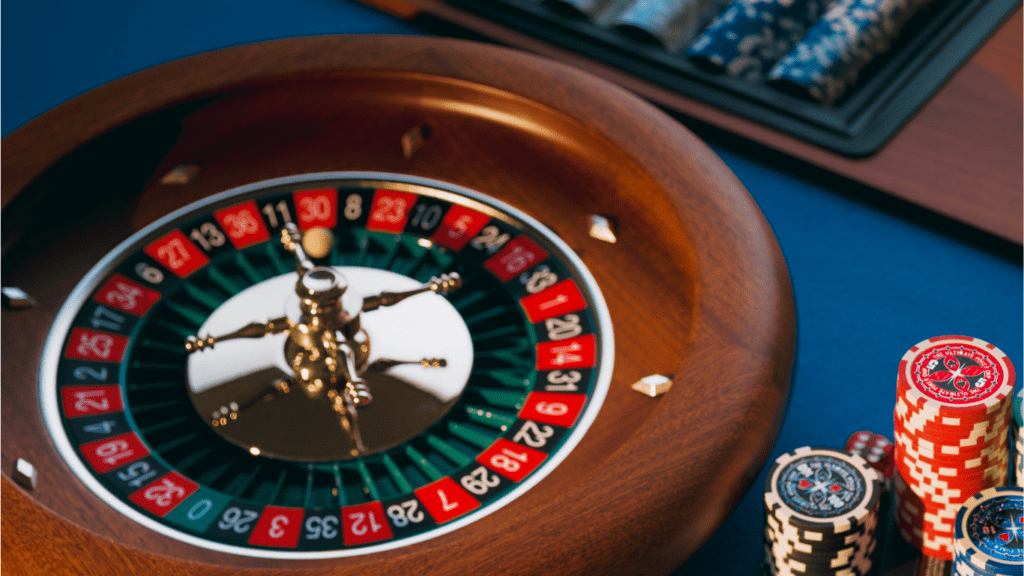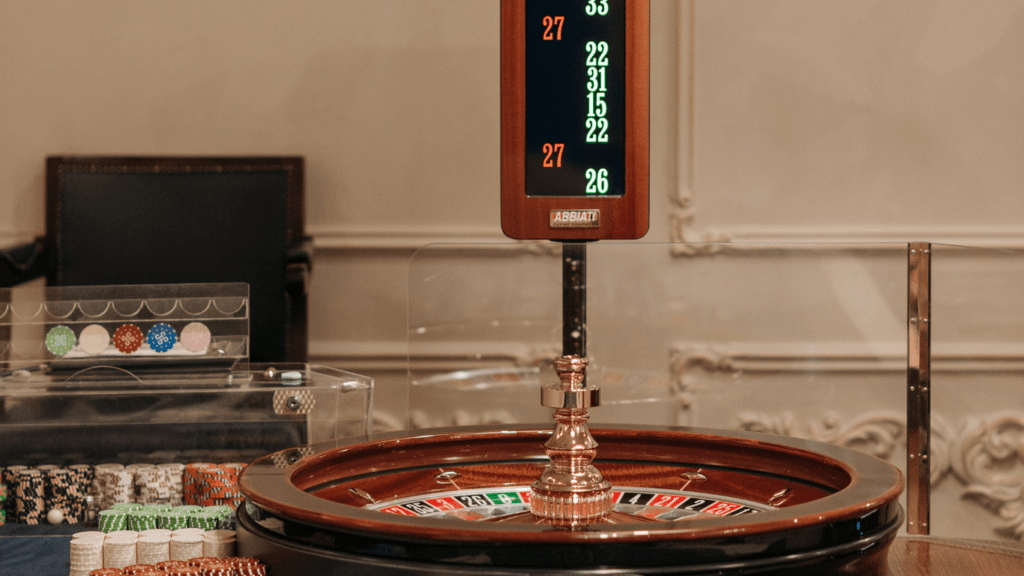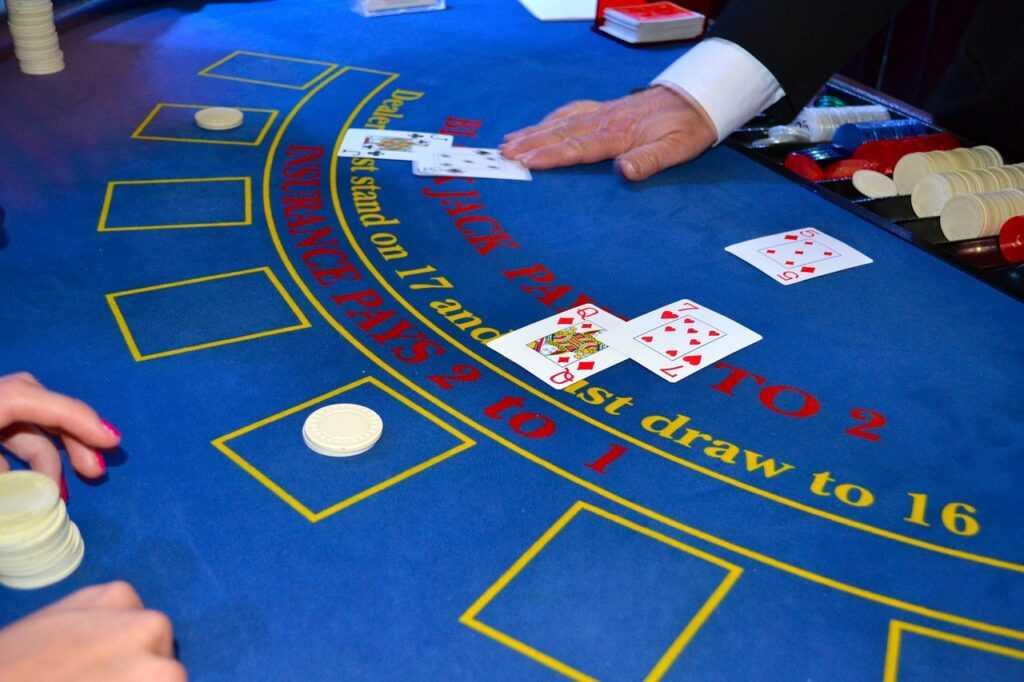Understanding the Basics of Roulette
Roulette involves betting on where a ball will land on a spinning wheel. There are two main types: American and European. American roulette has 38 pockets, including a single zero and a double zero, increasing the house edge to 5.26%. European roulette has 37 pockets with only a single zero, resulting in a lower house edge of 2.70%.
A roulette wheel has alternating red and black numbers, with the zeros marked in green. Players place bets on a table divided into sections matching the wheel’s numbers. These bets can be inside bets (specific numbers or groups of numbers) or outside bets (broader categories like red/black or odd/even).
An inside bet pays more, usually between 5:1 and 35:1, because the odds of winning are lower. For instance, a straight-up bet on a single number pays 35:1. Outside bets cover larger groups, paying 1:1 or 2:1 with higher winning odds. Examples include betting on red/black or odd/even.
Players often use chips to place bets on the table. The dealer, or croupier, spins the wheel and releases the ball. Bets can be placed until the dealer signals no more bets. When the ball lands on a pocket, the dealer announces the winning number and color, and pays out winning bets. Understanding these basics forms the foundation for developing effective strategies.
Common Myths About Winning at Roulette
Many believe they can beat the odds with clever tricks. Here are common myths debunked:
- The Gambler’s Fallacy: Some think past results influence future spins. Each spin is independent, random chance dictates outcomes.
- Lucky Numbers: Players often have a lucky number. There’s no mathematical basis, each number has equal odds every spin.
- Betting Systems Guarantee Success: Martingale or Fibonacci systems claim to ensure wins. No betting system changes house edge.
- Dealer Signature: Some believe dealers can influence spins. Modern wheels and techniques ensure spins are random.
- Hot and Cold Numbers: Players watch for streaks. Streaks are coincidences, not patterns to predict.
- Better Odds with Special Chips: Players think special chips change outcomes. Chips don’t affect wheel physics.
- Casino Systems to Trick Players: Tales of rigged wheels persist. Reputable casinos follow strict regulations for fairness.
My next section will focus on practical strategies, debunking more myths.
Proven Roulette Strategies

Successful roulette strategies often combine mathematical principles with disciplined betting. Below are some well-known strategies to consider.
The Martingale System
The Martingale System involves doubling your bet after each loss. This system assumes you’ll eventually win, recovering all previous losses and gaining a profit equal to the initial bet. Although this strategy can be effective in the short term, it requires a substantial bankroll to cover consecutive losses.
The Reverse Martingale System
The Reverse Martingale System, also known as the Paroli System, dictates doubling your bet after each win. This system aims to capitalize on winning streaks while minimizing losses during losing streaks. Unlike the Martingale, the Reverse Martingale doesn’t require a large bankroll but relies on timing to end a streak profitably.
The James Bond Strategy
The James Bond Strategy covers most outcomes on the roulette table by splitting bets. Specifically, place 70% of your total bet on high numbers (19-36), 25% on six numbers (13-18), and 5% on zero. This strategy aims to provide consistent small wins while limiting losses, though it does require a higher initial stake to be effective.
These proven roulette strategies offer different approaches to balance risk and reward when betting. Following a disciplined approach, players can increase their chances of long-term success.
Managing Your Bankroll
Proper bankroll management keeps losses in check and extends playtime. To start, I recommend setting a fixed budget. This helps ensure you won’t overspend. For example, if I have $200 to spend on roulette, I wouldn’t exceed this limit, regardless of my wins or losses.
Setting Loss Limits
Establishing loss limits prevents large financial setbacks. I define a loss limit as the amount I’m comfortable losing in a session. If my loss limit is $50, I’ll stop playing once I deplete this amount. This approach prevents chasing losses and ensures responsible gambling.
Determining Bet Size
Consistent bet sizing helps manage bankroll effectively. I typically divide my total budget into smaller units. With a $200 budget, I might bet $5 per spin. This strategy allows for more betting opportunities and reduces the risk of depleting my funds quickly.
Tracking Wins and Losses
Keeping detailed records of wins and losses provides insight into betting patterns. I use a simple log to record each session’s outcome. For example, noting if I’ve won $30 or lost $40 in a day helps me assess overall performance and adjust strategies accordingly.
Taking Breaks
Regular breaks maintain focus and prevent fatigue. I schedule breaks every hour or after a set number of spins. This practice keeps my decision-making sharp and reduces the likelihood of impulsive bets.
Using a Stop-Loss Strategy
A stop-loss strategy aligns with setting loss limits but focuses on stopping play once losses reach a predetermined point. If I decide my stop-loss is 25% of my bankroll, I’ll quit playing if I lose $50 from a $200 budget. This minimizes potential losses and promotes disciplined play.
Tips for Maximizing Success
To improve your chances of winning at roulette, follow these strategic tips.
Choosing the Right Table
Selecting the right table greatly impacts your success. European roulette tables offer better odds due to their single zero compared to American tables with double zeros. Always prioritize European tables if available. Additionally, look for tables with lower minimum bets to extend your playtime and increase opportunities for wins.
Setting Win and Loss Limits
Determining win and loss limits is crucial for maintaining control. Establish a clear win limit to know when to walk away with profits. Similarly, set a loss limit to prevent significant financial setbacks. By adhering to these boundaries, you can safeguard your bankroll and make more rational decisions during gameplay.



 Elizabeth Kaylor – Author
Elizabeth Kaylor is an experienced author and contributor at Smart Gamble Land. Specializing in casino game mastery and player psychology, Elizabeth provides readers with in-depth tips on how to approach popular casino games with confidence and precision. Her expertise in understanding player behavior, game dynamics, and strategy allows her to craft engaging content that appeals to both novice and experienced gamblers alike. Elizabeth's insightful articles offer readers the tools they need to thrive in high-stakes environments.
Elizabeth Kaylor – Author
Elizabeth Kaylor is an experienced author and contributor at Smart Gamble Land. Specializing in casino game mastery and player psychology, Elizabeth provides readers with in-depth tips on how to approach popular casino games with confidence and precision. Her expertise in understanding player behavior, game dynamics, and strategy allows her to craft engaging content that appeals to both novice and experienced gamblers alike. Elizabeth's insightful articles offer readers the tools they need to thrive in high-stakes environments.
